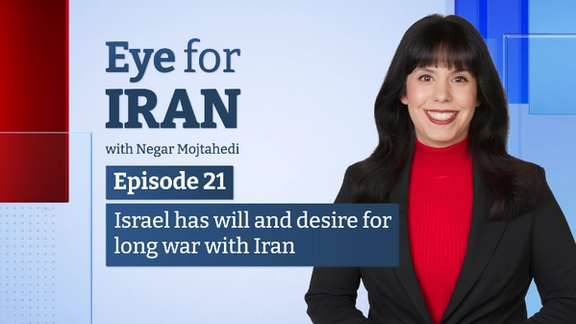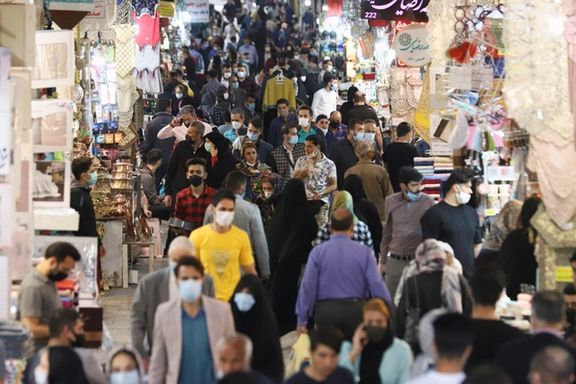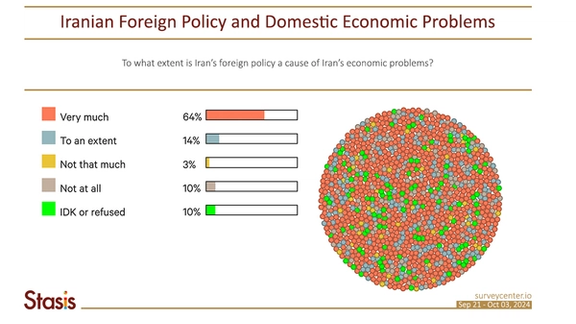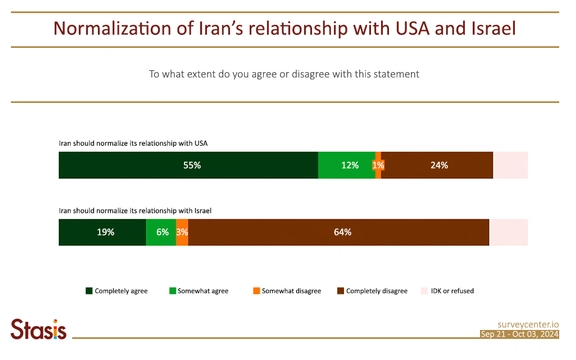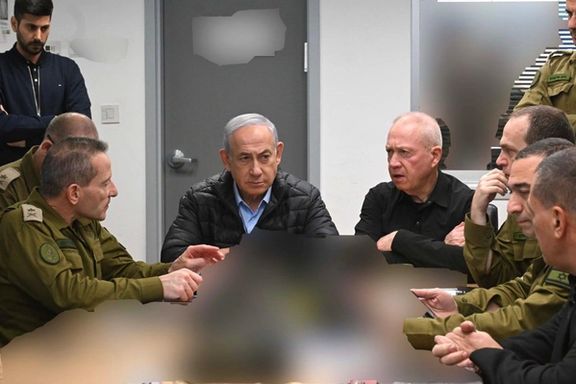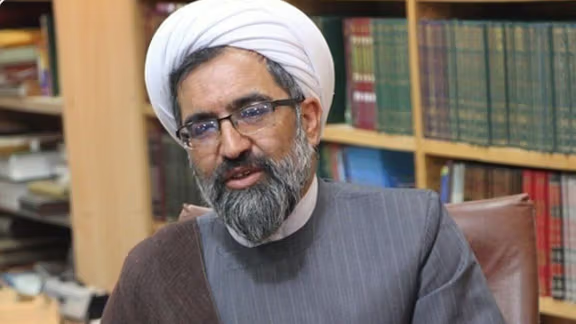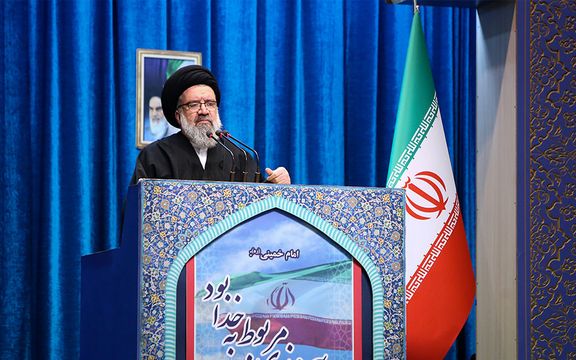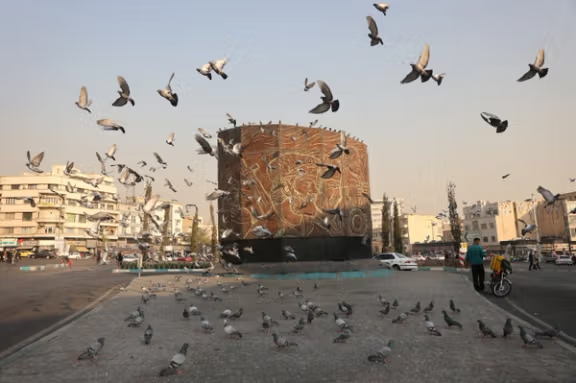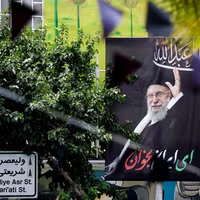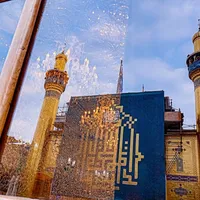Speaking on the Eye for Iran podcast, Afshon Ostovar, an associate professor of national security affairs at the Naval Postgraduate School and author of Wars of Ambition, said Iran pushed Israel to feel an existential threat. The interview was recorded before Israel's October 26 attack on Iran's missile sites.
"Israel sees this war post October 7th as an existential conflict. If you take Iran's leaders at their word, then this is exactly what they wanted," said Ostovar.
Ostovar emphasized that the Iranian government and IRGC must now confront the reality of provoking Israel, especially after Oct 7.
That perception of Iran by Israel will likely shape how the war is carried out, and it’s not going to be a one-time strike, but likely a long conflict carried out in stages.
Iran International first broke the story of a senior Israeli insider who gave a hint that Israel’s strike on Iran would signal ‘start of long war’.
“This attack is just the beginning of a long war between Israel and Iran,” said Brigadier General (res.) Amir Avivi. “There will be a big attack, but one of many."
Avivi, a close friend and Caesarea neighbor of Prime Minister Benjamin Netanyahu, is regularly consulted by key government ministers.
He had warned that Israel’s endgame was to prevent Iran from becoming a nuclear power.
Ostovar said that as the war drags on, the risk of targeting nuclear facilities increases, potentially leading to radiation fallout. That could have long-term impacts for civilians.
"When you attack nuclear facilities, there's spillage, radiation escapes. You have a huge humanitarian crisis potentially on hand."
For decades Iran and Israel have engaged in a shadow war through proxies, sophisticated cyber-attacks, covert operations and exchanging threating war of words. Since its inception in 1979, the Islamic Republic of Iran has said it would ‘wipe Israel off the wipe’. That is now seemingly starting to become a reality and if you take Iranian leaders by their word, then this is what they wanted and now they must face the consequences, said Ostovar.
Israel has covertly targeted military and nuclear facilities in Iran, killed scientists and commanders through alleged Mossad operations, but the reality of a direct and long-term war between the two enemies is a growing danger.
What is Iran capable of
But just how much force can Iran conduct? To answer that question, one must first determine what Iran's military capabilities are to understand how the war could be carried out.
Since Iran’s air force is outdated, the only way it could conduct a war against Israel is either through missiles or drones.
Iran has proven that it can penetrate Israel air defense systems, but they have been largely ineffective in terms of the damage that their missiles can inflict.
According to the International Institute for Strategic Studies ’annual assessment in 2023, the Iranian Armed forces are among the largest in the Middle East. At least 580,000 personal and about 200,000 trained reserves divided between the traditional conscripted army and the Islamic Revolutionary Guard Corps (IRGC).
But it would be highly unlikely, said Ostovar, that this conflict would see armed personal getting involved since Iran and Israel don’t share a border, and that leaves missiles and drones as the only feasible means for war.
The accuracy of Iran’s long-vaunted missile program has been called into question. A recent report by experts shared exclusively with The Associated Press suggested one of the advanced missiles Tehran would use in any future attack against Israel is far less accurate than previously thought.
Analysts at the James Martin Center for Nonproliferation Studies examined the Iranian strike on the Nevatim Air Base 65 kilometers (40 miles) south of Jerusalem in the Negev Desert. They believe Iran used its Emad missile, and assuming the target was the Israeli F-35I fighter jet hangars, the James Martin analysts measured the distance between the hangars and the impact zones of the missiles. The study concluded an accuracy range of 1.2 kilometers, which is far less than what Iran claims.
Despite that, Ostovar said it can still have devastating impacts for Israeli citizens.
In Iran’s Oct 1 attack on Isarel, 181 ballistic missiles were fired, and 30 of them got through Israel’s air defense system.
If those missiles were to target civilians' populations instead of a military base in the middle of the desert, then those 30 missiles could cause real harm and damage to people, said Otsovar.
Farzin Nadimi, a Senior Fellow at the Washington Institute, specializing in the security and defense affairs of Iran and the greater region, spoke in a previous episode of Eye for Iran . Nadmi said Iran’s missiles have had failures of launching and crashing before their intended target, but other times it can be successful and deadly.
While Hamas has been decimated and Hezbollah has been severely weakened, Ostovar points to a recent missile attack launched by Hezbollah at Israeli’s Prime Ministers seaside home that proves Iran’s proxies can still do damage.
According to Ostovar, Iran has one of the largest arsenals of ballistic missiles and drones in the Middle East including cruise missiles and anti-ship missiles, in addition to ballistic missiles with ranges up to 2,000 kilometers.
Tehran also has a large inventory of drones with ranges of around 1,200 to 1,550 miles, some of which are reportedly being used by Russia in Ukraine.
Israel is advanced in every aspect of its military compared to Iran, from its aircraft to its missiles, radar, to its anti-air defense system, said Ostovar.
The author and national security expert told Iran International Israel officials won't stop at just one strike, and Iranian officials will fire back, and as the war expands the potential for hurting people on both sides also increase.
“That's my worry is that this war expands to civilian targets because once that happens then people on both sides are going to suffer greatly."
To find out more and see why Ostovar believes neither side can actually win this conflict and how allies and the region would react, watch the full episode on YouTube or listen on Spotify, Castbox, Apple or Amazon.
